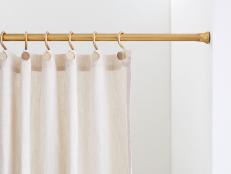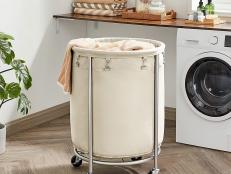How to Get the Most From Plant Retailers

No matter where you shop for plants, one of the best ways to get the most out of the shopping experience, says master gardener Paul James, is to build a relationship with those retailers.
Get the Best Information
"That doesn't mean that you have to invite them over to dinner or agree to walk their dog," Paul says, "but getting to know the employees can pay big dividends, regardless of how much money you spend." The biggest dividend of all is information. "I'll be the first to admit that not all employees are well-springs of knowledge, but it's not hard to figure out which ones are." Some employees may be horticulturists, landscape architects, designers, master gardeners or simply plant fanatics. Regardless of their academic or professional background, they can also be a source of rich gardening information, much of it most likely specific to your area, which is invaluable especially if you're new to the area.
Build a Rapport
Even if you're native to the area, knowing someone at the retail level means you're likely to get a call when the new and exciting plants are on order or have just arrived. Another benefit of getting to know people in the plant business is that they'll likely be more willing to do you a favor now and then. For example, let's say you just read about a really cool plant in a magazine but your favorite retailer doesn't stock it. Chances are, they'll be more than happy to special-order it for you.
What if you're in the process of preparing a new garden, but it won't be ready for another two or three weeks, and yet the plants you want for that garden are in stock and in pristine condition? It's a good bet that the folks at the nursery will be willing to tag the plants for you, move them to a holding area, and keep them well watered until you need them. However, don't expect them to hold your plants for more than a few weeks because space for holding plants is often limited.
You should also be willing to pay for the plants upfront. "Something I learned years ago about the importance of getting to know people in the retail plant biz," Paul says, "is that they'll let you know when truckloads of plants are scheduled to arrive, and believe me, that's information worth knowing!"
Knowing the shipment schedules means you get first dibs on newly arrived plants. And if you're looking for that perfect plant, being the first in line is all the more important. For example, in a shipment of around two dozen trees, chances are half of them will be nice looking, but they may have less than desired branching patterns. Another seven or eight may have oddly shaped trunks, and another four or five may be close to perfection, but among those only one is truly perfect. But if you're the early bird, that perfect tree is all yours!
You can also get advance information about plant shipments that are months away. This can be helpful as well, especially if you're doing a little advanced planning yourself in creating a new garden bed. You can go ahead with your plans knowing that the plants you'll need will be available when you need them. And when you need them, it's entirely possible that you can arrange to have them delivered right to your home. There may be a nominal charge, but very often, good customers get good deals on deliveries. Very often good customers also get advanced notice on upcoming sales, and that kind of insider information can save you a bundle of money! Depending on the time of year, the discounts can be up to 50 percent, maybe even more, and it may apply to your favorite plant or plant group.
Last, but hardly least, retailers often remove plants that didn't fare well or haven't sold well for months, and as a result don't look all that hot. If you know somebody on the plant lot, you may be able to take that plant home for pennies on the dollar. "And with a little tender loving care, you just might be able to turn a sleeper into a keeper."
So clearly, having a relationship with plant retailers is a good thing.
Tips
If you take a sample of a diseased plant to a retailer for analysis, make sure it's safely secured in a plastic bag, and don't take it out of the bag. Some diseases can be extremely infectious and may spread rapidly if given the opportunity, and if you infect a retailer's inventory, you'll be remembered for a long time to come, but not necessarily in a good way. Realize that earning the title of good customer isn't necessarily based solely on the amount of money you spend. It's also based on your interests, enthusiasm, your loyalty as a customer, and whether you're the type of person who is fun and friendly to work with or a demanding, grumpy gardener.
There are a few things you shouldn't expect. Don't expect detailed design services at no charge. It's OK to take a rough sketch or photo of your landscape for a few quick tips and ideas, but chances are that the staff won't have time to really give you a full-blown design. In addition, a number of operations offer design services for which they charge even their best customers. "In other words, if you want design services, be prepared to foot the bill," Paul says.
If you're looking for advice and information, try to avoid peak time, particular weekends. Instead, show up early on weekday mornings when the place isn't so busy. Actually, in terms of cultivating those all-important relationships, Paul suggests that the best time is during the off season like the middle of winter or middle of summer. While there won't be as many plants to talk about, the employees will certainly have a whole lot more time to get to know you, your needs and your interests. And who knows, you might end up cultivating a true friendship in the process.
.-Battle-on-the-Beach-courtesy-of-HGTV.-.jpg.rend.hgtvcom.196.196.suffix/1714847929029.jpeg)











































